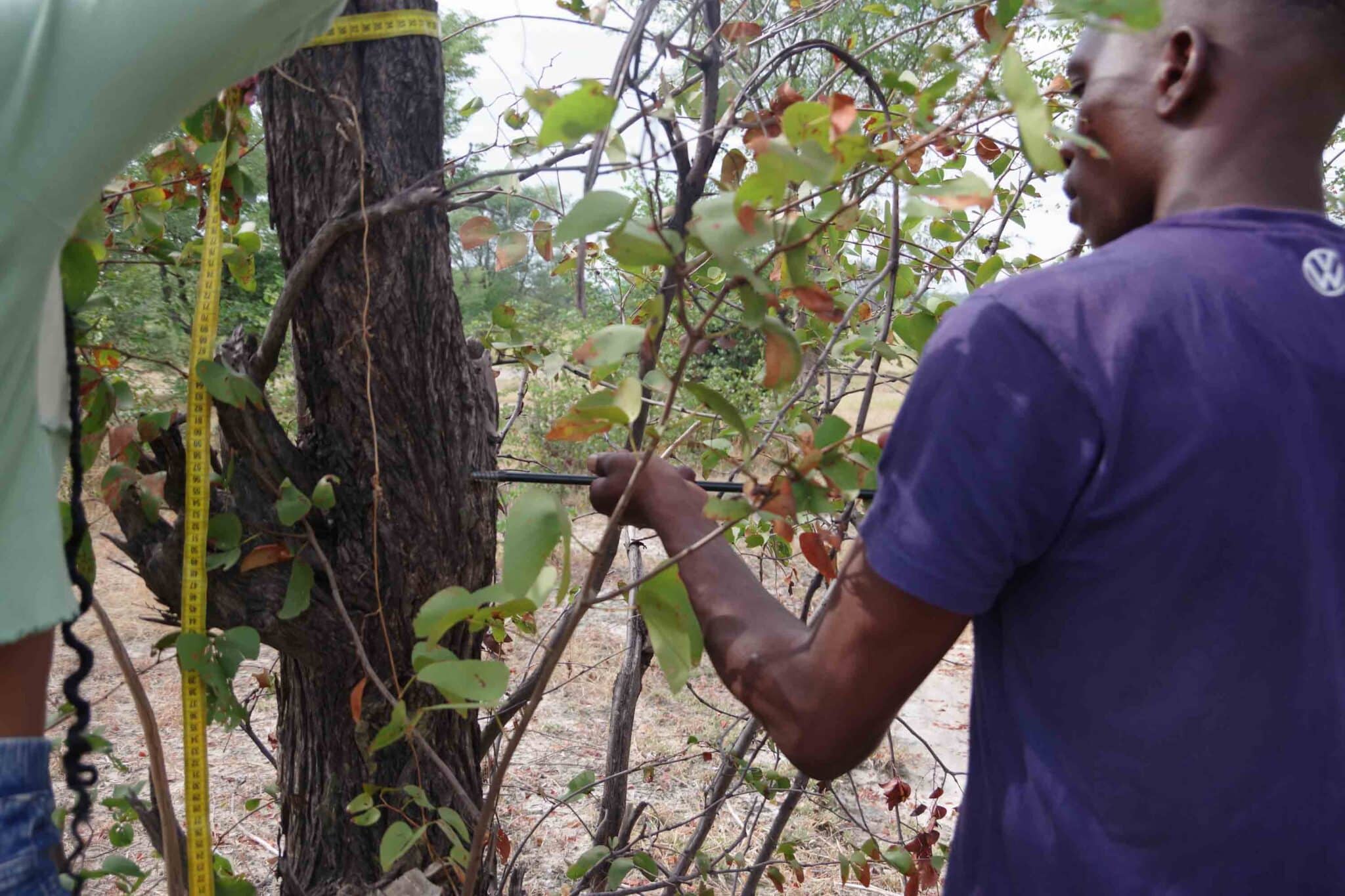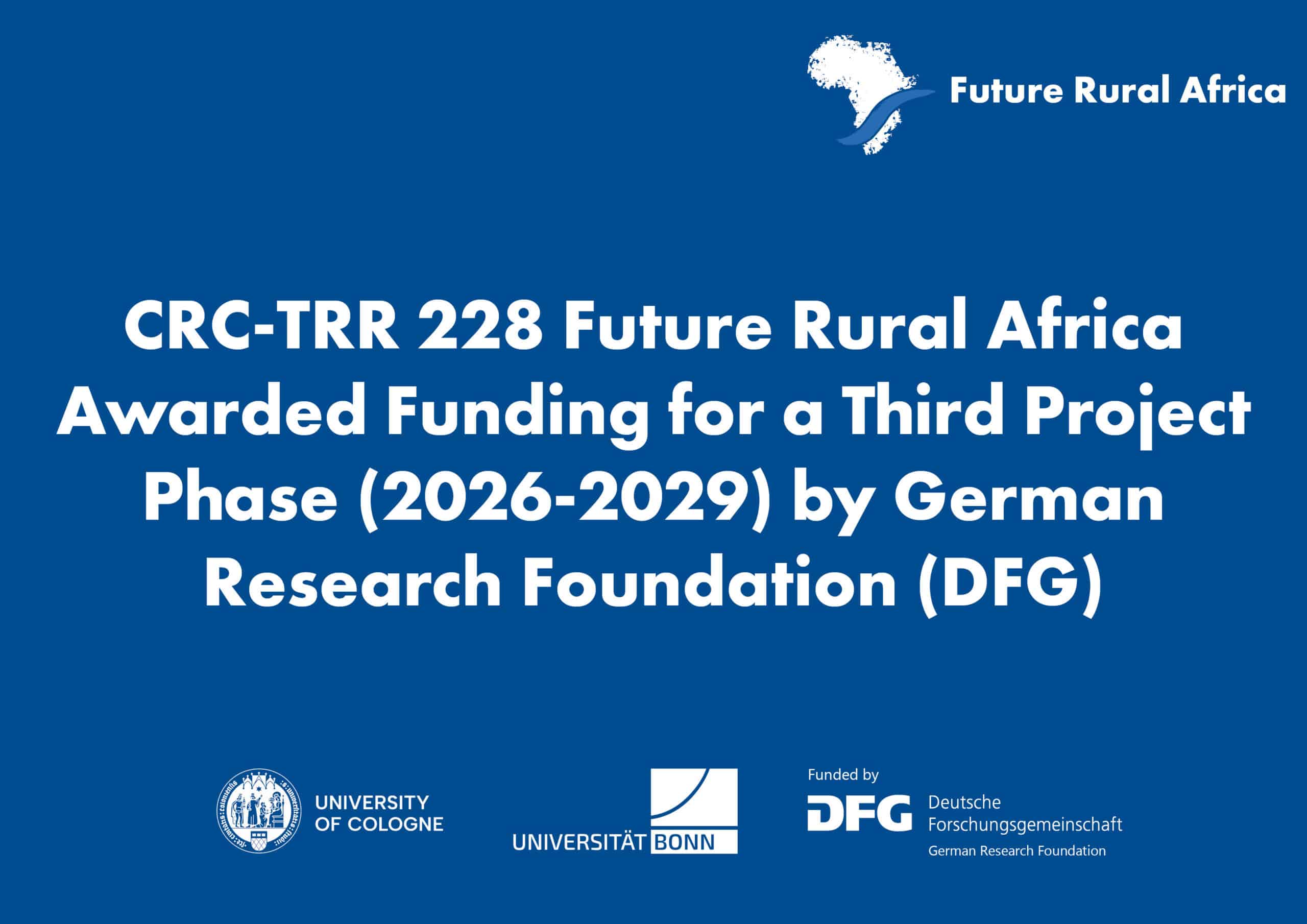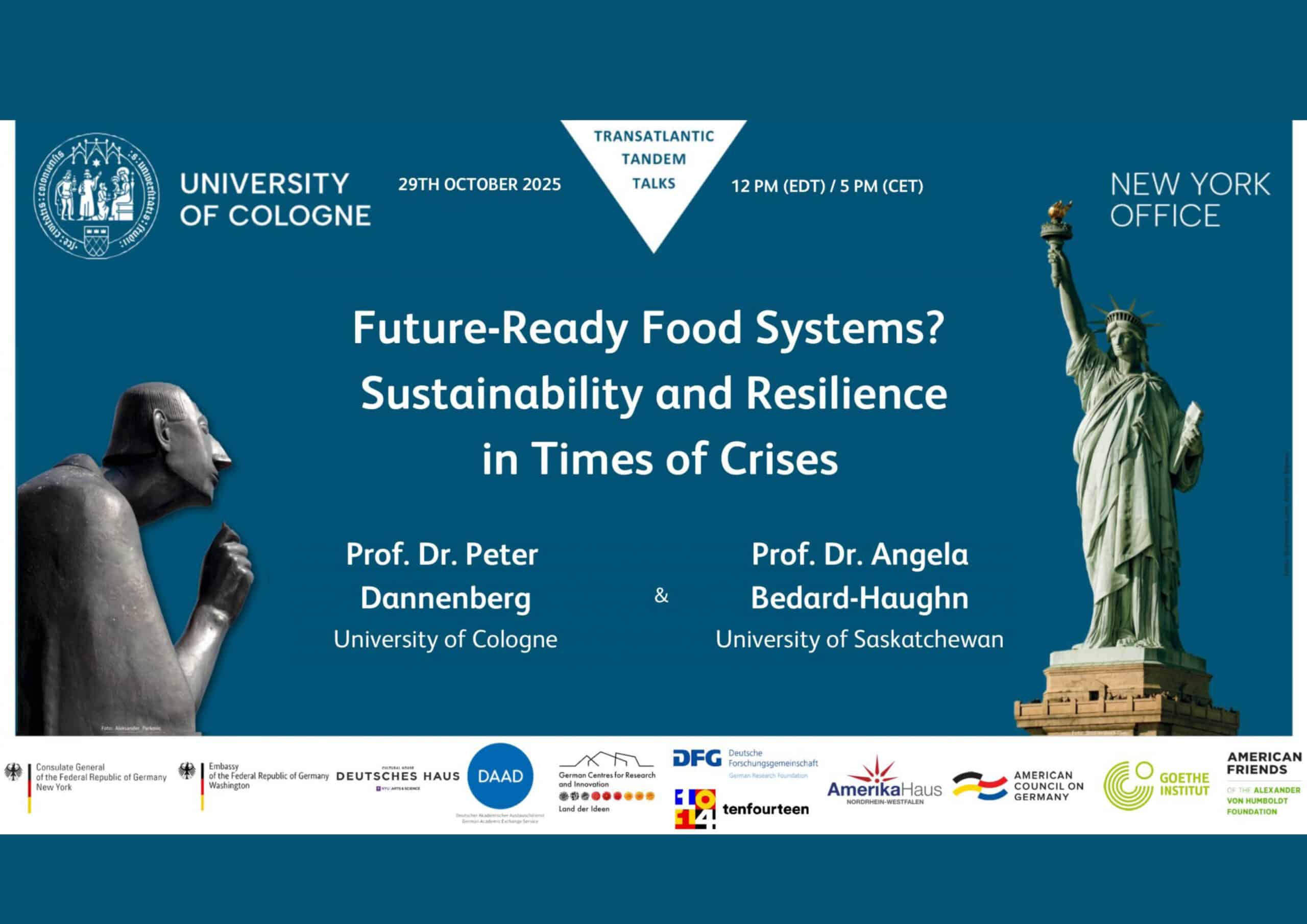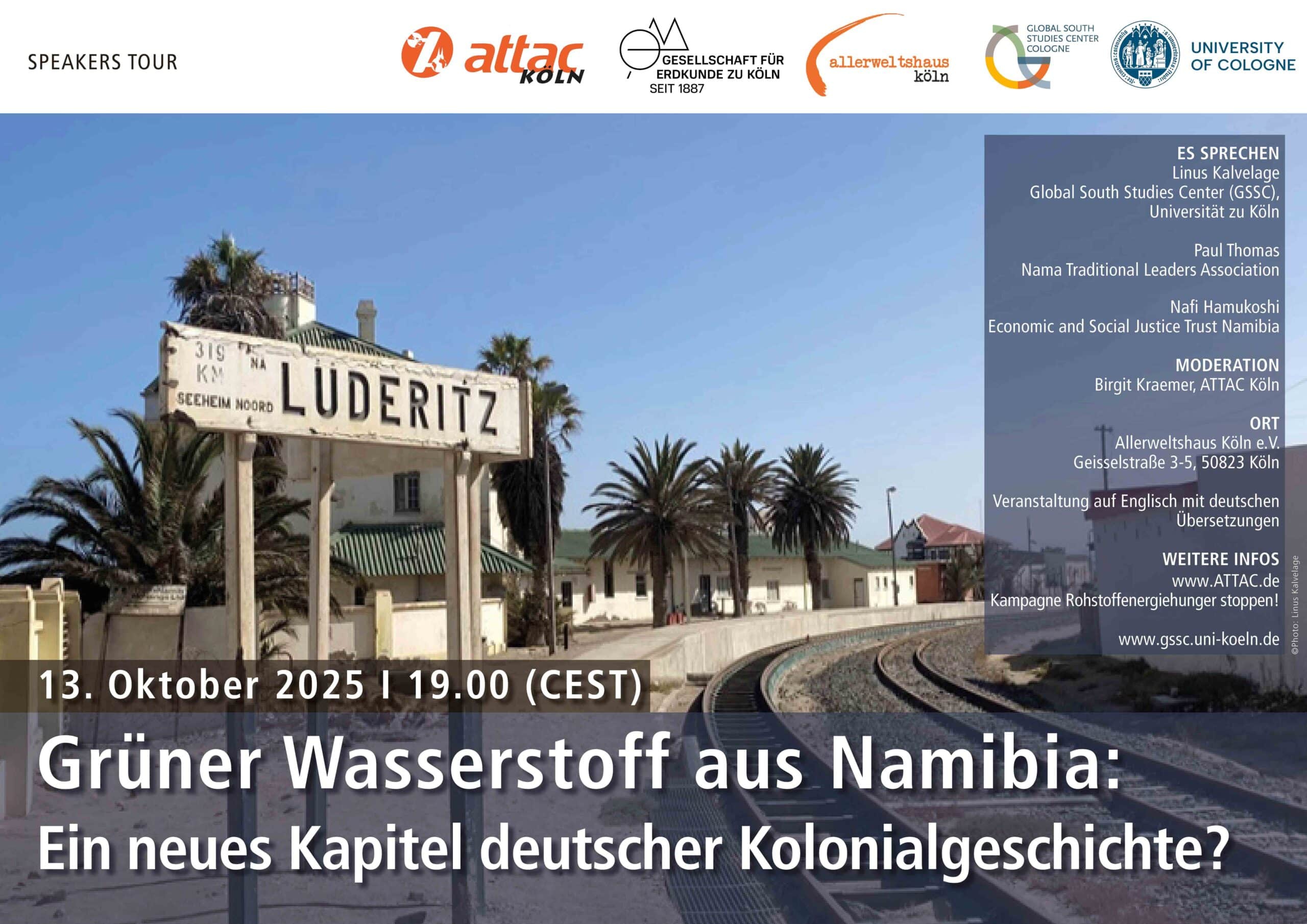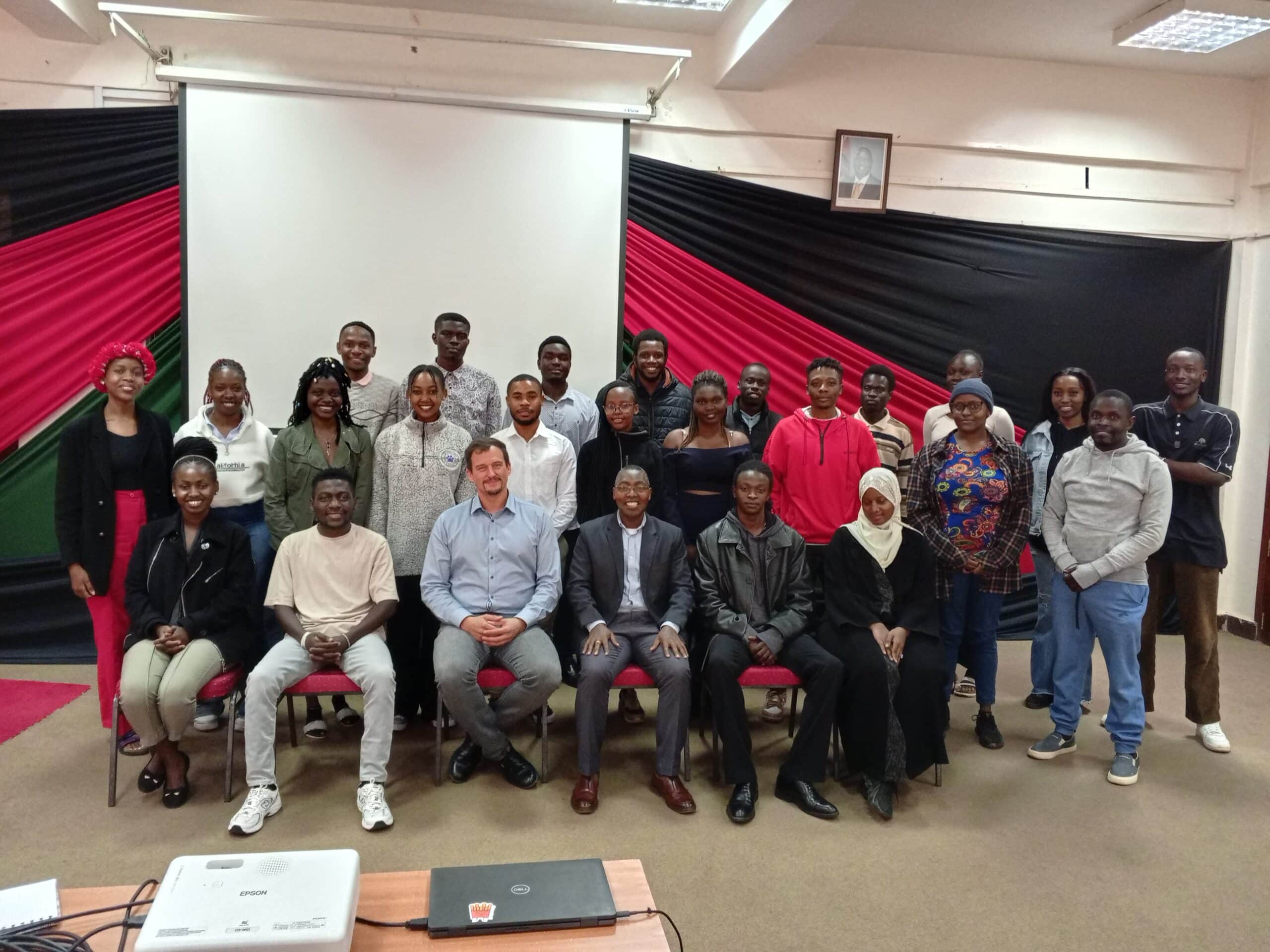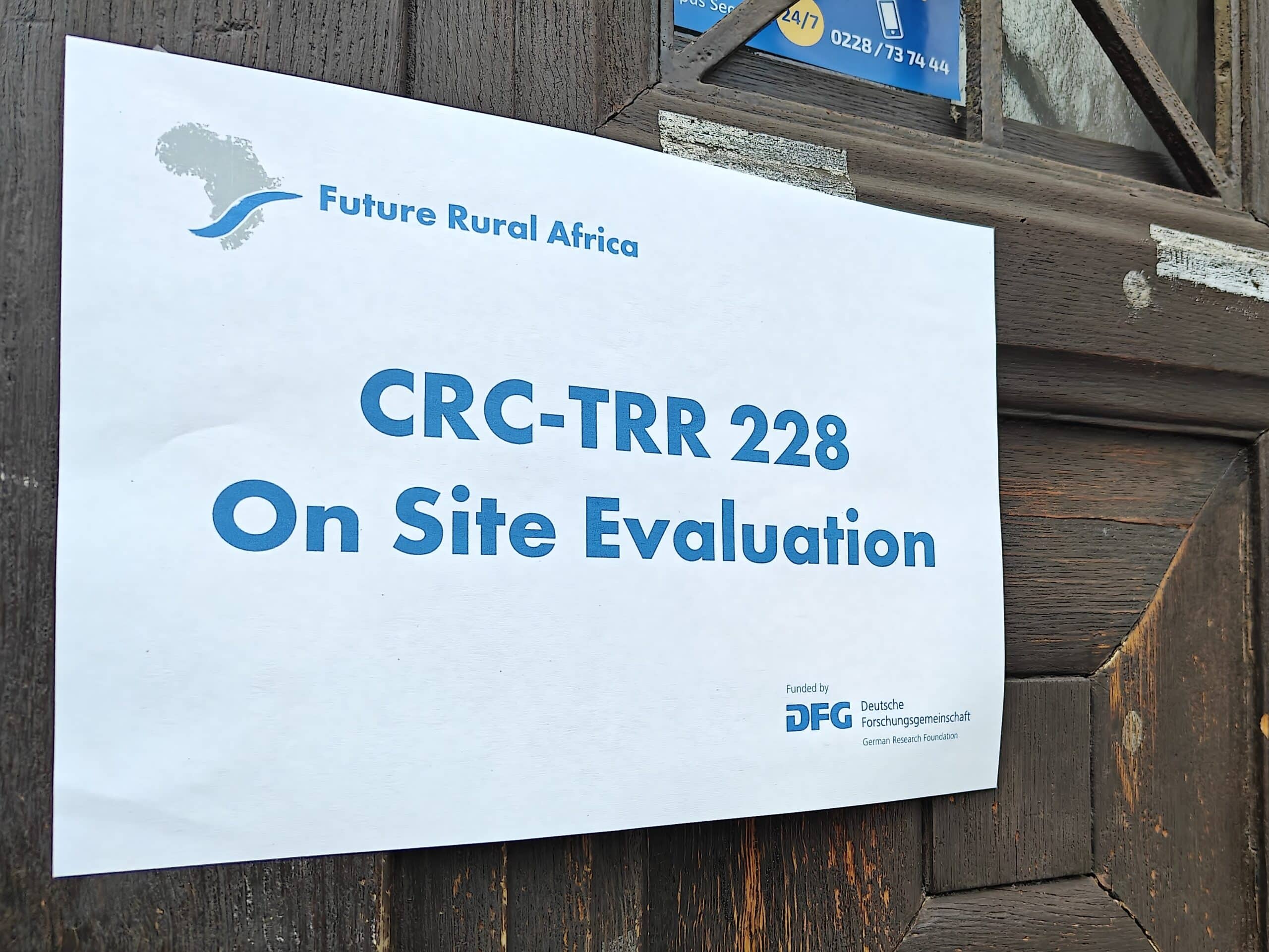By Ezequiel Fabiano, Katharina Stein, Julian Krausen and Anja Linstädter (Future Rural Africa Project C01 “Future Carbon Storage”).
After ecological fieldwork in southern Zambia, a team of researchers from project A01 “Future Carbon Storage” at the request of Dr. Ezequiel Fabiano arranged a one-day field practical to share the survey methods with students pursuing a degree in Wildlife Management and Tourism Studies’ B.Sc. program, at the University of Namibia (UNAM). The workshop was jointly organized by Katharina Stein and Ezequiel Fabiano and held by Master’s student Julian Krause with Eva Kasinda (department senior technologist), Sitali Mbehah and Arnold Mbaimbai, two Namibian research assistants. The workshop aimed to enhance sustainable knowledge transfer among partners of the CRC Future Rural Africa, and provide hands-on training for Namibian students. Participants gained practical experience in identifying trees, understanding the concepts of functional plant strategies, and measuring trees’ size parameters and functional traits. The workshop received very positive feedback from participants. They expressed interest in pursuing further studies in vegetation ecology and nature conservation.
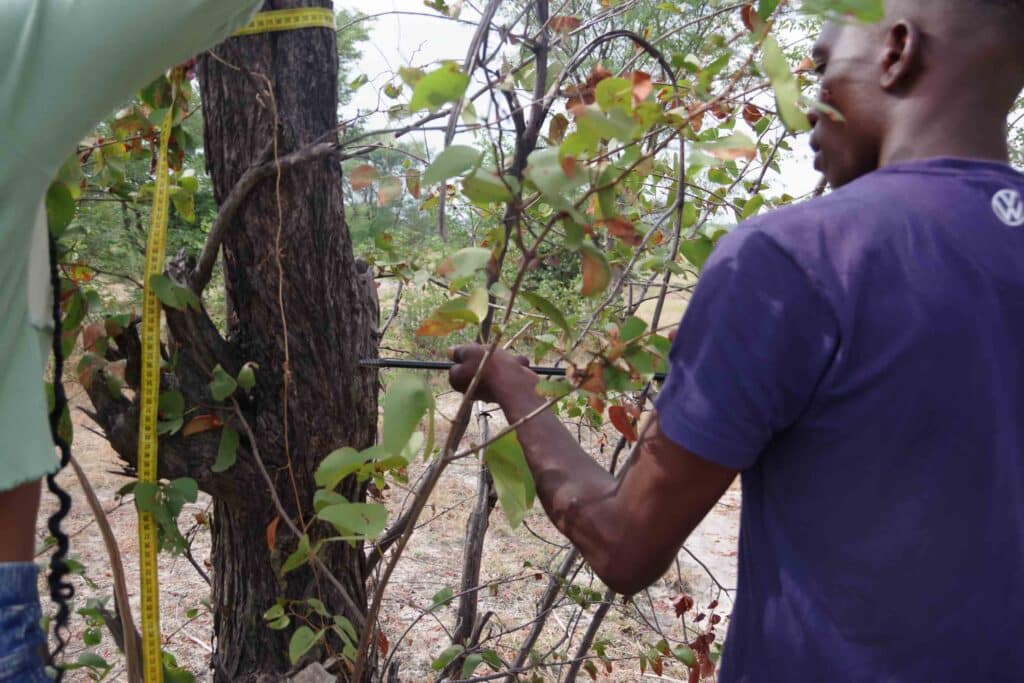
The ten participating students from UNAM were first encouraged to identify unknown trees in the surrounding savanna. This was followed by a short introduction to concepts of functional plant ecology, specifically the Leaf Economics Spectrum and functional plant strategies, distinguishing competitive, stress-tolerant and ruderal plants. The workshop was embedded into the course “Ecological Methods for Wildlife Studies” led by Dr. Ezequiel Fabiano from UNAM.
The highlight of the workshop was the hands-on measurement of tree size parameters and functional traits conducted by students in small working groups. The workshop concluded with the processing of leaf samples collected during the fieldwork at the UNAM wildlife laboratory, setting the stage for further analysis. Emphasizing not only on the sampling methods themselves, but also the importance of precision, consistency, and international collaboration in scientific data collection, the workshop contributed to train future experts for conservation projects in Namibia’s portion of the Kavango-Zambezi Transfrontier Conservation Area. Overall, the practical was received with great enthusiasm by the participants:
“Today’s practical was very insightful and informative. I learnt how much more complex plant processes are than I initially believed.“
(Denzel Muradrikum)
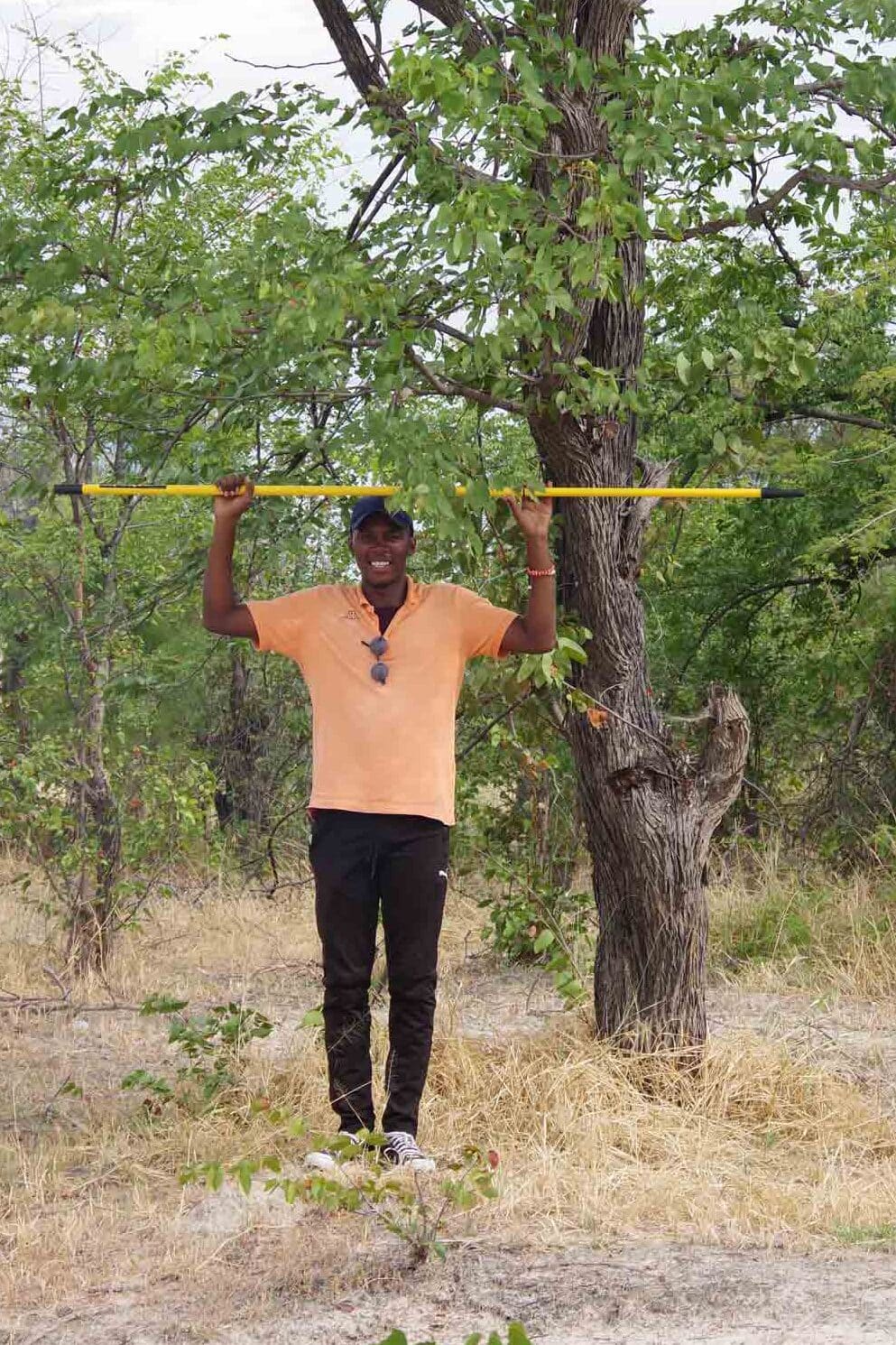
“It was an educational day with Mr. Krause. I learned a lot regarding tree sampling. The explanation was very understandable, so I have developed a love for trees. Thank you!”
(Hilya Joseph)
“It was great spending a day with you in the field. I have learned a lot about how to collect data from vegetation using different tools. This made me interested in doing my master’s degree in vegetation.”
(Joseph Mbambo)
The workshop’s success underscores the importance of international collaboration and knowledge exchange in advancing scientific research in global change ecology and nature conservation.

